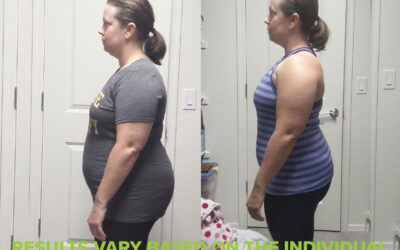Menopause is not just a biological process; it’s a significant lifestyle shift that affects various aspects of health, including metabolism and weight management. At Personalized Nutrition Concepts, we specialize in crafting nutrition solutions that cater specifically to the needs of menopausal women. This blog will guide you through the best foods to incorporate into your diet to combat menopausal weight gain effectively. Understanding what to eat can empower you to manage hormonal changes more comfortably and maintain your health and vitality during this transitional phase. Weight gain during menopause is primarily driven by hormonal fluctuations that affect appetite, metabolism, and fat storage, particularly around the abdomen. However, with the right dietary choices, you can help counter these effects. Let’s explore the foods that are not only nutritious but also beneficial in managing menopausal symptoms and preventing weight gain.
High-Fiber Foods
Fiber is a powerhouse nutrient for weight management during menopause. Foods high in fiber, such as fruits, vegetables, whole grains, and legumes, help keep you fuller for longer, reducing the likelihood of overeating. Additionally, fiber helps regulate blood sugar levels, which can be particularly beneficial as hormonal changes during menopause can affect your body’s insulin sensitivity. At Personalized Nutrition Concepts, we encourage incorporating a variety of fiber-rich foods into your diet. For instance, starting your day with a bowl of oatmeal or adding a side of quinoa to your lunch can significantly boost your daily fiber intake. Also, snacks like berries, nuts, and raw vegetables are excellent for keeping hunger at bay while providing a healthy dose of fiber.
Lean Proteins
Protein is crucial for maintaining muscle mass, which naturally declines with age. Lean protein sources such as chicken, turkey, fish, tofu, and legumes not only provide essential nutrients but also help in managing weight by enhancing satiety. Consuming adequate protein can prevent muscle loss, which is vital since muscle burns more calories than fat, helping to keep metabolism active. We recommend including a source of lean protein at every meal to support muscle health and boost metabolism. Options like grilled salmon, tofu stir-fry, or a chickpea salad are not only delicious but also align with the goals of maintaining a healthy weight during menopause.
Healthy Fats
Healthy fats are essential for hormonal balance, which is crucial during menopause. Foods rich in omega-3 fatty acids, such as flaxseeds, walnuts, and fatty fish like mackerel and sardines, can help manage hormonal fluctuations and reduce inflammation associated with menopausal symptoms. Integrating healthy fats into your diet also supports heart health, which is particularly important as the risk of cardiovascular disease increases after menopause. Avocados, nuts, seeds, and olive oil are great sources of monounsaturated fats and can be easily added to various meals throughout the day.
Calcium-Rich Foods
Calcium intake is vital during menopause, as the decline in estrogen levels can lead to bone density loss. Ensuring adequate calcium intake through diet can help combat osteoporosis. Dairy products, fortified plant milks, leafy greens, and almonds are excellent sources of calcium. At Personalized Nutrition Concepts, we ensure that your customized diet plan includes adequate calcium, considering your preferences and any dietary restrictions. Whether through dairy or plant-based sources, we find ways to fit calcium-rich foods into your daily meals.
Phytoestrogen Foods
Phytoestrogens are plant-derived compounds that mimic the effects of estrogen in the body and can be particularly beneficial during menopause. Foods such as soybeans, tofu, tempeh, flaxseeds, and sesame seeds are rich in phytoestrogens and can help balance hormones naturally. Incorporating these foods into your diet can help alleviate some menopausal symptoms like hot flashes and night sweats. Personalized Nutrition Concepts can guide you on how to safely include phytoestrogens in your diet, ensuring that you reap their benefits without overconsumption.
Managing menopausal weight gain involves understanding the hormonal changes that affect your body and adjusting your diet accordingly. By incorporating high-fiber foods, lean proteins, healthy fats, calcium-rich foods, and phytoestrogens into your diet, you can not only manage your weight but also improve your overall health during menopause. At Personalized Nutrition Concepts, we are committed to helping you navigate this phase with tailored nutrition programs that meet your individual needs, ensuring that you feel supported and healthy every step of the way.



0 Comments